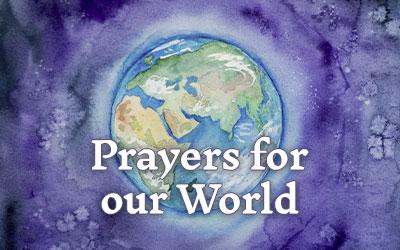Afghanistan: Leader Digs In on Peace Talks Despite Progress

President Ashraf Ghani is holding up a tentative agreement on the talks’ framework, some officials say. His aides say no agreement was near.
President Ashraf Ghani of Afghanistan has refused to let peace talks move forward even though the Taliban and government negotiators have reached a tentative agreement on the talks’ guiding principles, Afghan officials say, further stalling the process despite nearing an apparent breakthrough after months of effort.
The Taliban exposed those fault lines on Saturday when the insurgent group announced on social media that both sides had agreed to the nearly two dozen points under discussion earlier this month — a framework for how talks would go forward, including points of protocol and how issues would be presented.
But some government officials immediately pushed back on that claim, insisting that details still needed to be worked out and that no agreement had been reached. They say the Taliban were pressured by Western officials to signal a breakthrough.
Three Afghan officials with knowledge of the talks said that Mr. Ghani took exception to at least one detail, insisting that the government side be referred to by its formal name, the Islamic Republic of Afghanistan, rather than by a more generic reference.
Such details have broken down efforts to negotiate before. The Taliban’s past insistence on being referred to as the Islamic Emirate of Afghanistan — the name of their government when they were in power — derailed an effort at talks in 2013 and was a sticking point in the talks between the United States and the Taliban that eventually led to a deal opening the way for a troop withdrawal, officials said.
That the Taliban were not sticking to that title in the guiding framework this month — agreeing to less specific references to the government and insurgent sides, and to other more central points of contention — was seen as an important accomplishment.
Now, the talks have been cast into further doubt by Mr. Ghani’s demand, officials and analysts said.
In a statement on Monday, Sediq Sediqqi, an Afghan presidential spokesman, said that Mr. Ghani was “steadfast in his resolve to make the peace talks succeed and that “some of the views” in this Times article were “unwarranted and baseless,” but he did not elaborate further.
“At this stage the whole process has shifted to both sides’ convincing an international audience that the other side is disingenuous,” said Ibraheem Bahiss, an independent Afghan research analyst. “But long term, it could strengthen the hand of those within the Taliban that advocate for a military solution and view the current process as fruitless.”
American and Western diplomatic officials have not publicly responded to the breakdown. But people with direct knowledge of the talks in Doha, Qatar, have described diplomats as being frustrated with Mr. Ghani’s stance, and have suggested that the government negotiating team has been functionally split between loyalists to Mr. Ghani and other officials who are frustrated with him.
The introductory talks, which opened in hope and spectacle in Qatar in September, have unfolded over months of brutal violence back in Afghanistan. The Taliban have intensified their offensives in crucial provinces, leading the government to accuse the insurgents of holding the talks hostage with their violence.
On Sunday, a stolen Humvee laden with explosives and crewed by a suicide bomber rammed into an Afghan military base in Ghazni Province, killing at least 30 security force members, government officials said.
There may be other crucial reasons that Mr. Ghani and his aides are digging in, as well.
More: https://www.nytimes.com/2020/11/29/world/asia/afghanistan-taliban-peace-talks.html
Pray that the escalating violence and bombings in Afghanistan will stop
Pray that there will be an end to the impasse so that serious negotiations can begin
Pray for peace in Afghanistan where the people have suffered for too long


